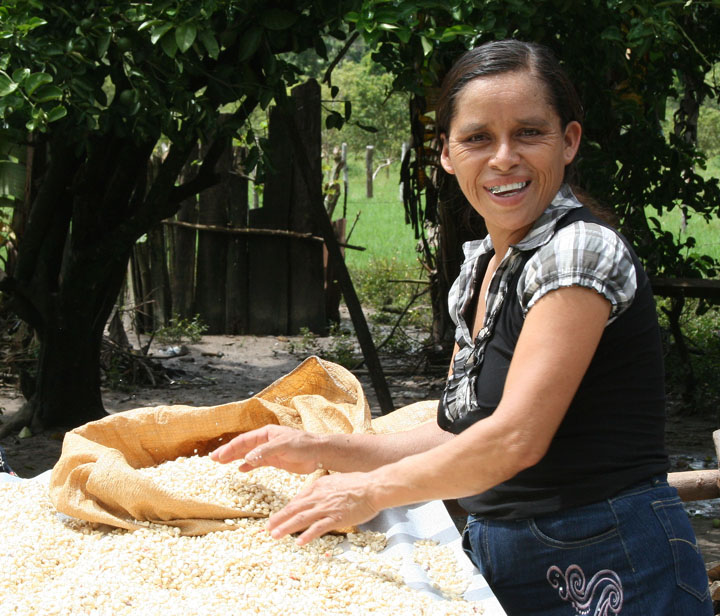

Land deeds and patience produce peace in Chiapas village

Building peace and preventing conflict are processes that require continuity and commitment, something well known to the inhabitants of the small community of San José el Bascán in southern Mexico.
After 17 years of tensions and strife over land ownership, villagers there have been able to work out an accord, leave behind their divisions and begin to live in peace, thanks to a dialogue process spearheaded by the United Nations through the MDG-Fund.
San José el Bascán, in the troubled state of Chiapas, was founded in 1995 by 20 families displaced from a neighboring community by a wave of violence sparked by the emergence of pro-government paramilitary groups and the murder of four supporters of the revolutionary Zapatista Army of National Liberation (EZLN).
"We moved away to avoid further loss of life, leaving our homes, property, cattle and poultry. After so many attacks, we decided to move, because our original community had displaced us and then forgotten about us,” said one villager, explaining that the group of 20 families moved first to a small hamlet before being displaced again and finally settling in San José el Bascán.
Poverty fueled by conflict
Their story is a common one in Chiapas, where armed conflict erupted in 1994 between the Mexican government and the Zapatistas, dividing communities, spreading violence, and producing widespread marginalization and exclusion. Displaced rural families like those that settled in San José el Bascán are the forgotten victims of the conflict, many still living in poverty and isolation.
In the late 90s, the new community in San José el Bascán was again riven by conflict, when 13 of the original families withdrew their allegiance to the EZLN and threw their support behind the grassroots organization Kichán Kichañob, whose name in the native Ch'ol language means "Cousins Brothers" and which advocates reconciliation among indigenous families.
Compounding the political clashes were tensions over land rights. Despite a government-brokered accord between the two camps in 2007, threats and intimidation continued. "The real root of the problem was poverty and lack of attention by government authorities," says Pedro Lopez, regional leader of Kichán Kichañob.
Chiapas is the poorest state in Mexico, with the vast majority of its community living on or below the poverty line. 70% of the residents of San José el Bascán have not completed primary school and 30% are illiterate. The village lacks basic services like electricity, drinking water and sanitation, and many homes have dirt floors and open fires. But everyone agrees that the top priority here was to create stability by securing land rights.
Mediating land ownership disputes
The MDG-F-financed UN programme began working with the community in 2010 to build bridges of understanding, facilitating two years of roundtable discussions between government, advocates for indigenous peoples and grassroots organizations that finally culminated in the resolution of the land ownership dispute.
The programme also addressed some of the structural causes of the conflict by focusing on living conditions and the village’s social fabric. The floors of villagers’ homes were improved and wood-efficient stoves were introduced; construction and production projects, as well as sport events, were launched to bring the community together.
"I no longer breathe smoke in the kitchen, the kitchen is clean and the children are healthy. The United Nations seeks a culture of peace," said one villager, who recently participated in a collective community reflection in which most members agreed that owning land and having new infrastructures was allowing them to live with dignity and in peace.
"They listened to us, heard our needs. Without the help of the programme, the needs of these families would still be unmet, " says Jeronimo Alvaro Arcos, Kichán Kichañob representative in San José el Bascán.
Reinforcing the rights of vulnerable groups
“Conflict prevention, development of agreements and peace building for internally displaced persons (IDPs) in Chiapas State” is implemented by four UN agencies (UNDP, UNESCO, UNICEF and UNODC) in collaboration with state and local authorities and civil society groups.
It works with 24 communities of people displaced by the clash between the Mexican State and the Zapatistas to reduce conflicts and tensions and to promote lasting solutions focused mainly on reducing poverty and promoting the rights of vulnerable groups.
The programme is part of the MDG-Fund’s work to diminish inequalities and to assist governments around the world in reaching the Millennium Development Goals of reducing poverty and improving livelihoods.